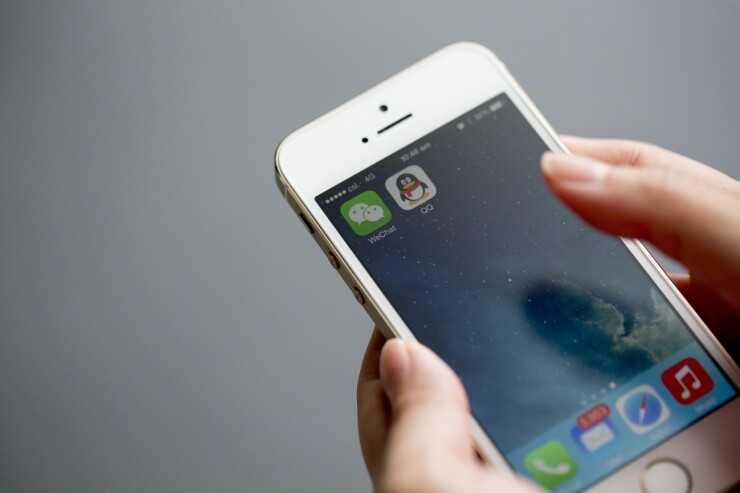Employees at e-sports organization Team Liquid no longer use key cards to enter their Santa Monica office. Now, all they need to get inside is something workers carry with them everywhere: a smartphone.
Team Liquid eliminated its traditional key system in March and switched to Openpath, a new app that allows employees to use their mobile devices to access the office. Openpath, founded in 2016, markets itself as a way for workers to enter their job without having to remove phones from their pocket.
When an employee approaches the office entrance, the app connects to a sensor via Bluetooth and unlocks the door. Employees don’t even have to take their phones out of their pocket, says the company’s operations manager, Jared Forkner.
“I use it all the time, and now it’s second nature,” Forkner says. “It is the future for all of us, I think.”

James Segil, co-founder and president of Openpath, says the company wanted to create a more secure solution that would give employees access to the office without having to carry a traditional key card or badge, which can easily be copied by scammers. The company still provides key fobs to employees who opt not to use the app, although most employees select the mobile version.
“We ensure we really nail that mobile experience,” he says.
The Openpath system also allows employers to give “digital guest passes” to non-employees for a specified amount of time, Segil says. For example, if HR has invited a candidate in for an interview, they can grant them access to an entrance for a predetermined amount of time prior to the meeting. Openpath will then send the candidate a web link they can use to open the door, he says.
“One of the challenges that HR professionals have is they’re often burdened with the management of the access control system,” Segil says. “All of that is time-consuming and it’s not value creating.”
The system also allows employers to easily add and remove employees who may either be new to the company or leaving for a new job. HR departments can give or revoke access via their mobile phones or desktops.
Forkner says he thinks the technology is more secure than traditional key cards because if an employee loses their phone, HR can revoke the lost phone’s access to the app. Openpath costs slightly more than a traditional keycard system, Forkner says, but overall, he thinks it is worth it. The ease of access for employees makes it easier to manage, he says.
“The ability to track everything is huge,” Forkner says.
Openpath charges users upfront for the system’s installation and then, depending on the plan they select, employers pay either monthly or annually, per door registered. Segil says their plans start at about $40 per door. It is free for employers to add new employees to the system, he says.
Segil equates Openpath to other benefits that employers are adding, like free meals or massages, that make the office environment more appealing to workers. He says he hopes the app makes the workday a bit more manageable for employees.
“We started this business because we wanted to improve the workday experience for everyone,” he says. “Everyone says, ‘Oh, I can just use my phone instead of a key or a badge’ [that was an] ah-ha moment for us.”





